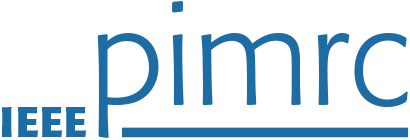Workshop Co-Chairs
Fumihide Kojima
National Institute of Information and Communications Technology, Japan,
Kentaro Saito
Tokyo Denki University, Japan
Goal
A workshop aims at bringing together speakers from industry and academia to discuss a timely and relevant topic of interest to conference participants. Therefore, workshops may address one or more tracks, but they should be organized under a unified theme.
Proposal
The proposal for a workshop should follow the template, available at the conference webs. A workshop must have at least two proposers: one serving as the General Chair and the other as the Chair of the Workshop Technical Program Committee (TPC). It is recommended to have in total 2–3 Workshop TPC (Co-)Chairs. The proposal should be submitted to Workshop Co-Chairs Fumihide Kojima and Kentaro Saito by 25 March 2022 (Extended to 10 April, 2022).
Structure
Workshops will be held fully virtual. Workshops may include invited speakers, papers, and panels. The structure of a workshop is not fixed, and proposers may design it as they think best. Proposers are responsible for defining the full contents of the workshop, namely the authors and presenters.
Papers
Workshop papers should be full papers (6 pages) and should be reviewed by the Workshop Technical Program Committee, being done via EDAS (the conference TPC Chair and Secretary will establish the settings for the review process), which will be used also for the submission of papers. The organizers of an accepted workshop proposal need to create the Workshop Call for Papers. The submission deadline is on June 3 (Extended to June 17 June 30), 2022. The acceptance notifications must be made by June 24 (Extended to July 8 July 22). It is expected that open calls for Workshop papers are launched, in order to attract authors.
All papers should have a minimum of 3 reviews according to the IEEE principles and practices. The Workshop TPC Chair is fully responsible for the review process. The papers will be part of the Conference Proceedings and they will appear in IEEE Xplore.
Schedule
Workshops will be held fully virtually. Since the conference does not support on-demand presentation streaming, all the presenters need to present in a real-time manner in the sessions.
Duration
Workshops may extend for either a full- or a half-day (i.e., four or two conference times-slots, each time slot being 1h30).
Public information
The following information will be made public:
• Workshop Chairs’ names, affiliations, e-mail, and biographies
• Workshop title
• Structure
• Duration
• Workshop TPC
Evaluation
The following criteria will be taken into consideration for the evaluation and ranking of workshop proposals:
1. Relevance
2. Timeliness
3. Technical Content
4. Novelty
5. Overall Recommendation.
Workshop Co-Chairs will conduct the evaluation.
Submission Format
Authors are required to make sure that the PDF file and the EDAS registration page of a submitted paper have the same list of authors, title, and abstract (minor wording differences in the abstract are ok). Failure to comply with this rule may lead to the withdrawal of your paper from the review process. Please note that the authors list of an accepted paper CANNOT be changed in the final manuscript.
All submissions should be written in English with a maximum paper length of seven (7) printed double-column pages (10-point font) including figures. Authors of accepted papers with camera-ready versions exceeding 6 pages will be requested to pay mandatory over-length charges per extra page in excess of six (6) up to seven (7), for their papers to be published in the IEEE PIMRC 2022 Conference Proceedings and submitted for inclusion in IEEE Xplore®.
Standard IEEE conference templates for LaTeX formats are found here.
You can also use the sample template for Microsoft Word in US Letter format.
Only PDF files generated by Acrobat 5 or later versions will be accepted for both the review processing and final publication steps. Camera-ready versions of accepted papers must be certified by PDFeXpress.
Both review versions of submitted papers and camera-ready versions of accepted papers should not embed bookmarks, form fields, or URL links (cf. Note 1 below), neither contain page numbers, headers, footers, or PDF annotations . Paper pages should be in US Letter format with left and right margins of at least 1 in, a top and bottom margins of at least 0.75 in and 1 in, respectively, and a gutter of 0.1 in between columns (cf. Notes 2 and 3 below).
Note 1: Please make sure that you remove hyperlinks to all email addresses in the authors’ affiliations or to all webpage reference citations in the bibliography section.
Note 2: Complying with the PIMRC 2022 format constraints indicated above might not be sufficient to avoid PDF upload issues on EDAS. In case you face embedded fonts issues, please refer to the following IEEE Tutorial.
Note 3: For authors using the LaTeX template, a warning may show up once their papers are uploaded successfully. If the warning indicates that you are exceeding the right margin at the last page (i.e., where your references are most likely listed), you can ignore it! In fact, the IEEE template does not allow to break a reference, leading to an “underfull vbox” warning, but the final result will be much more like what the IEEE will publish.


